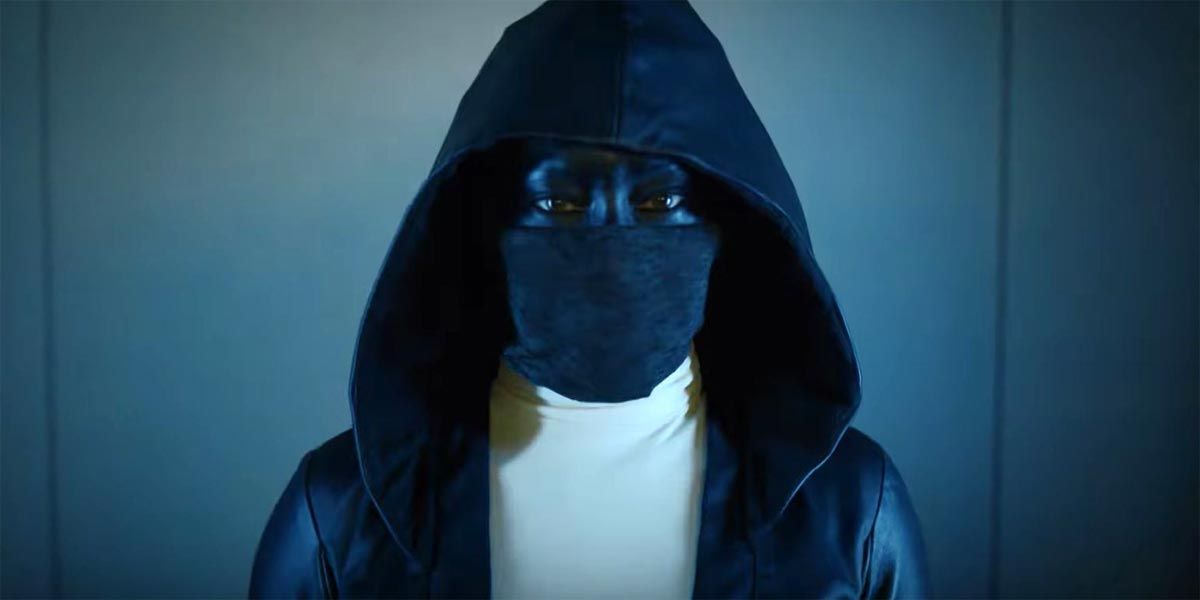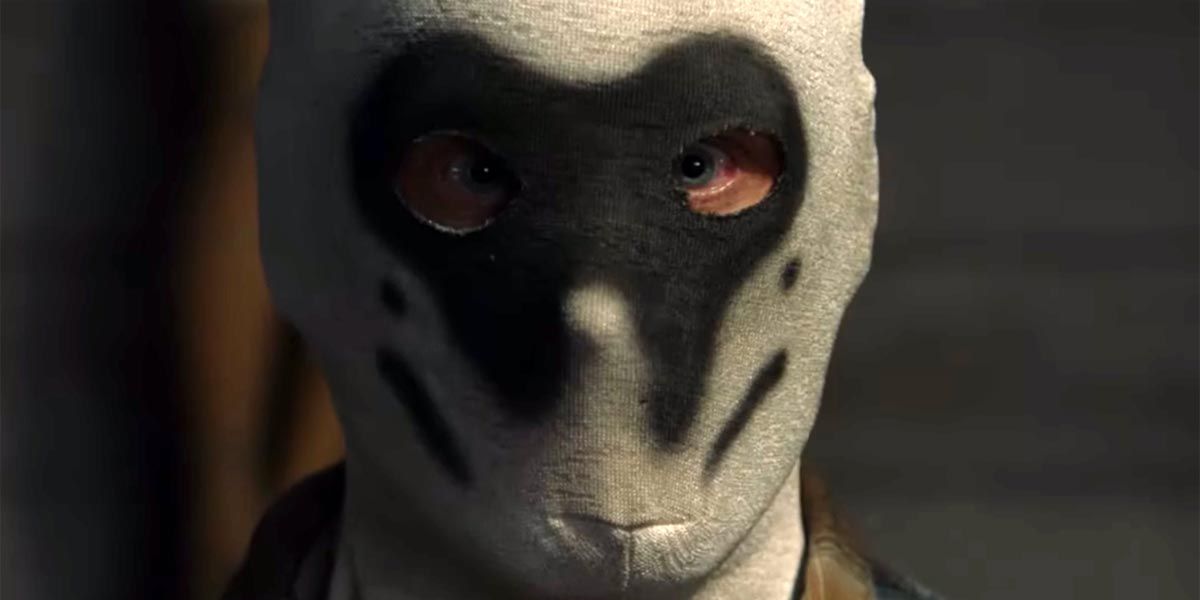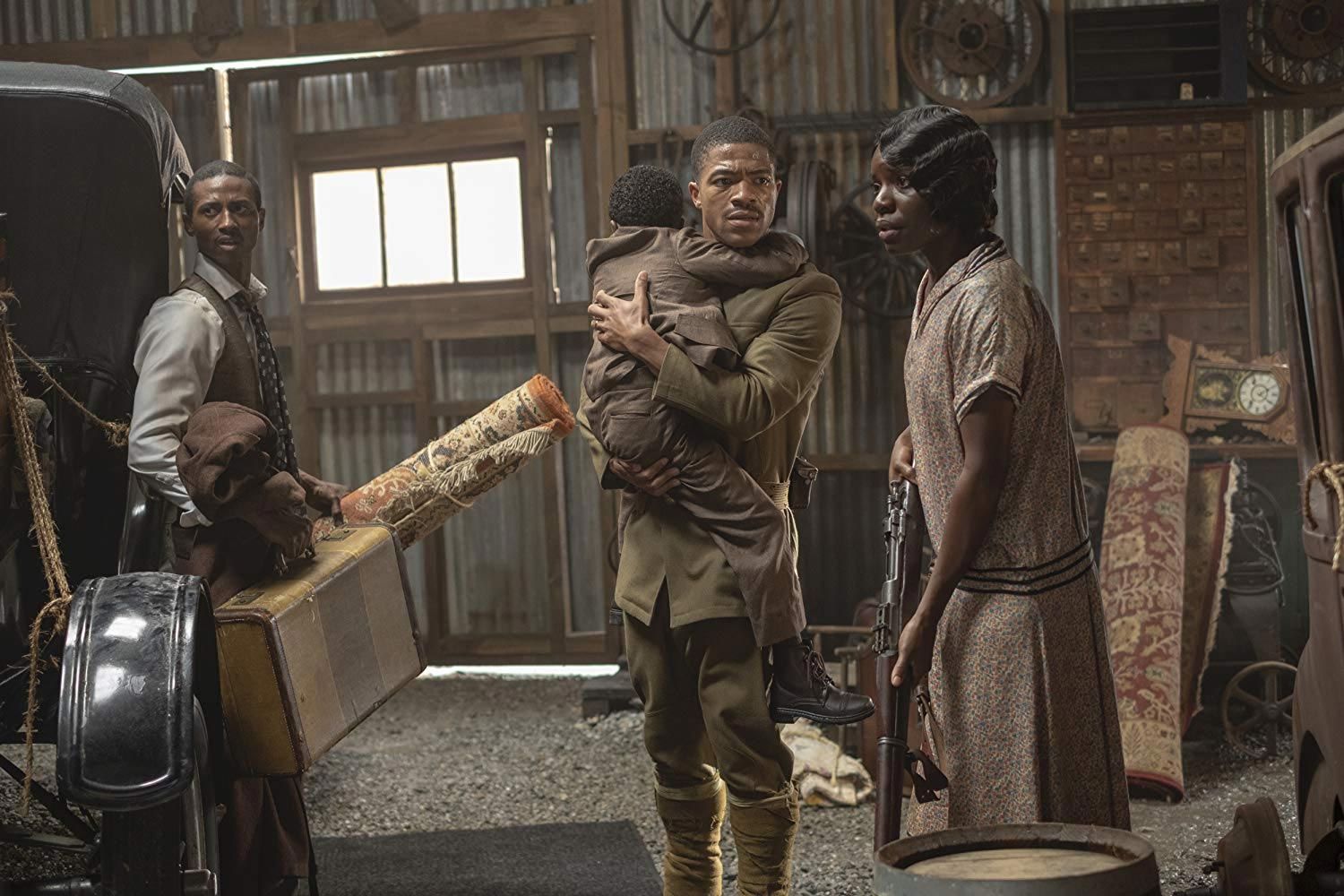WARNING: The following contains minor spoilers for the series premiere of HBO's Watchmen.
While the subject matter of Watchmen, the seminal comic series by Alan Moore and Dave Gibbons, is broad in scope, it neglected to deal with the race issues integral to the American identity. Conversely, HBO's new television sequel puts the topic front and center from its opening scene, making the absence of race politics in the source material all the more glaring.
It may come as a surprise even to those familiar with the original comic that racism was barely touched upon. The story wrestled with the problems sexism, homophobia, xenophobia, classism, and consumerism far more than it ever struggled with race. In fact, race proved throughout the story to either be tagged-on characterization to flesh out background characters or else completely incidental. Captain Metropolis is referred to offhand as having made racially insensitive comments, and Hooded Justice is similarly referred to with rumors of possessing Nazi sympathies. Neither detail receives much expansion, however, and even the characters they attach to are from from the forefront of the ensemble cast. Outside of those mentions, there are a few background details involving racial epithets, but the characters never really deal with or discuss racism.
There are, in total, two black characters that stand out as anything other than background detail. Neither is a superhero, and neither is particularly important to the story. The first introduced is the comic reader by the newsstand, an unnamed, flat stereotype, if anything. He hangs around the newsstand in patched-up pants, hassles the vendor about paying for the comics he reads, smokes cigarettes, and talks in a stereotypical accent. The news vendor talks far more than he does, and the audience learns substantially more about the story the boy reads than the boy himself. The only other major black character is Malcolm Long, the criminal psychiatrist who attempts to treat Rorschach during his stay in prison. While he is more fleshed out, Long receives little narrative focus. Perhaps the most interesting aspect of him from a racial point of view occurs after the HBO show's debut, in which Rorschach's influence on the white-supremacist group brings the vigilante's own views on race into question.
As perhaps the TV drama's most valuable contribution to the decades-long discourse on one of the most philosophically examined comics of all times, the race issues that HBO's Watchmen brings up allow us to re-examine interactions like Rorschach and Long's. On the show, Rorschach's journal (published by the New Frontiersman newspaper elsewhere described as defending the Ku Klux Klan) inspires a white-supremacist group known as the Seventh Kavalry. Named for the real-world military regiment at the forefront of Manifest Destiny and headed by racially problematic George Custer, the Seventh Kavalry seemingly embraces views Rorschach himself never professed.
RELATED: Watchmen: Everything We Know About the Failed '90s Movie
How could he? As the comic so seldom deals with race, it never really comes up. It's notable in examining the possibility of Rorschach's extremist right-wing views being racist that he never gave the issue much thought. He certainly never mentioned it to Long during their examinations, or even in the journal that apparently inspired the hate group 30 years later. When re-reading the comic, however, the absence of race issues does not really seem purposeful. It's more like an oversight.
While Moore and Gibbons offered astonishing insights into the American identity, the American dream, and the cultural development of the United States, this seems to be one area where they were lacking. Not being Americans themselves, it's actually unsurprising that racism and the long shadow of slavery in American history wouldn't stand at the forefront of their minds. Despite the comic casting an immensely wide net over everything that it means to be an American, this was one area that went utterly neglected.
Until now. The HBO series begins with a flashback to the Tulsa race massacre of 1921. A real-world tragedy wrought at the hands of the KKK and others, the riots cast the history of vigilantism in the United States in a new light. Far from the heroes the term vigilante evokes in superhero fiction, this was a racist mob that enlisted aircraft in an attack on the Oklahoma city's Greenwood District, resulting in the destruction of 36 blocks, and the deaths of an estimated 100 to 300 people. The premiere episode aptly examines that element to its world's history and culture, and weaves it into the story that unfolds in the present day.
With Regina King's character, Sister Night, as the primary protagonist, African-American representation in the world of Watchmen is better than ever. The concern with projects like this, where one of the original creators condemns any attempt to expand or capitalize on their work, is that they will somehow besmirch or dilute the source material. HBO's Watchmen allays those concerns by instead enhancing and strengthening the inspiration, and even just one episode in contributes to the canon in an important and meaningful way.
Developed by Damon Lindelof, HBO's Watchmen stars Jeremy Irons, Regina King, Don Johnson, Tim Blake Nelson, Louis Gossett Jr., Yahya Abdul-Mateen II, Tom Mison, James Wolk, Adelaide Clemens, Andrew Howard, Frances Fisher, Jacob Ming-Trent, Sara Vickers, Dylan Schombing, Lily Rose Smith and Adelynn Spoon. The series airs Sundays at 9 p.m. ET/PT.



